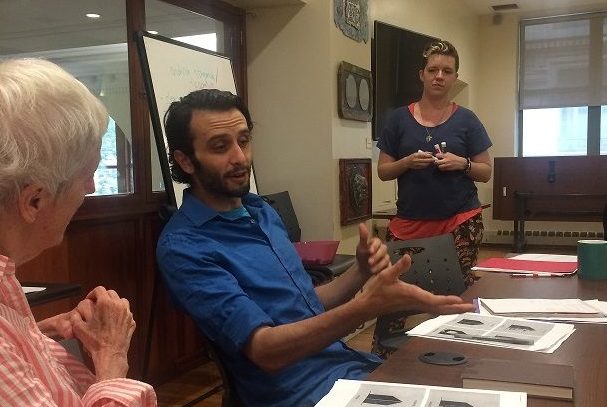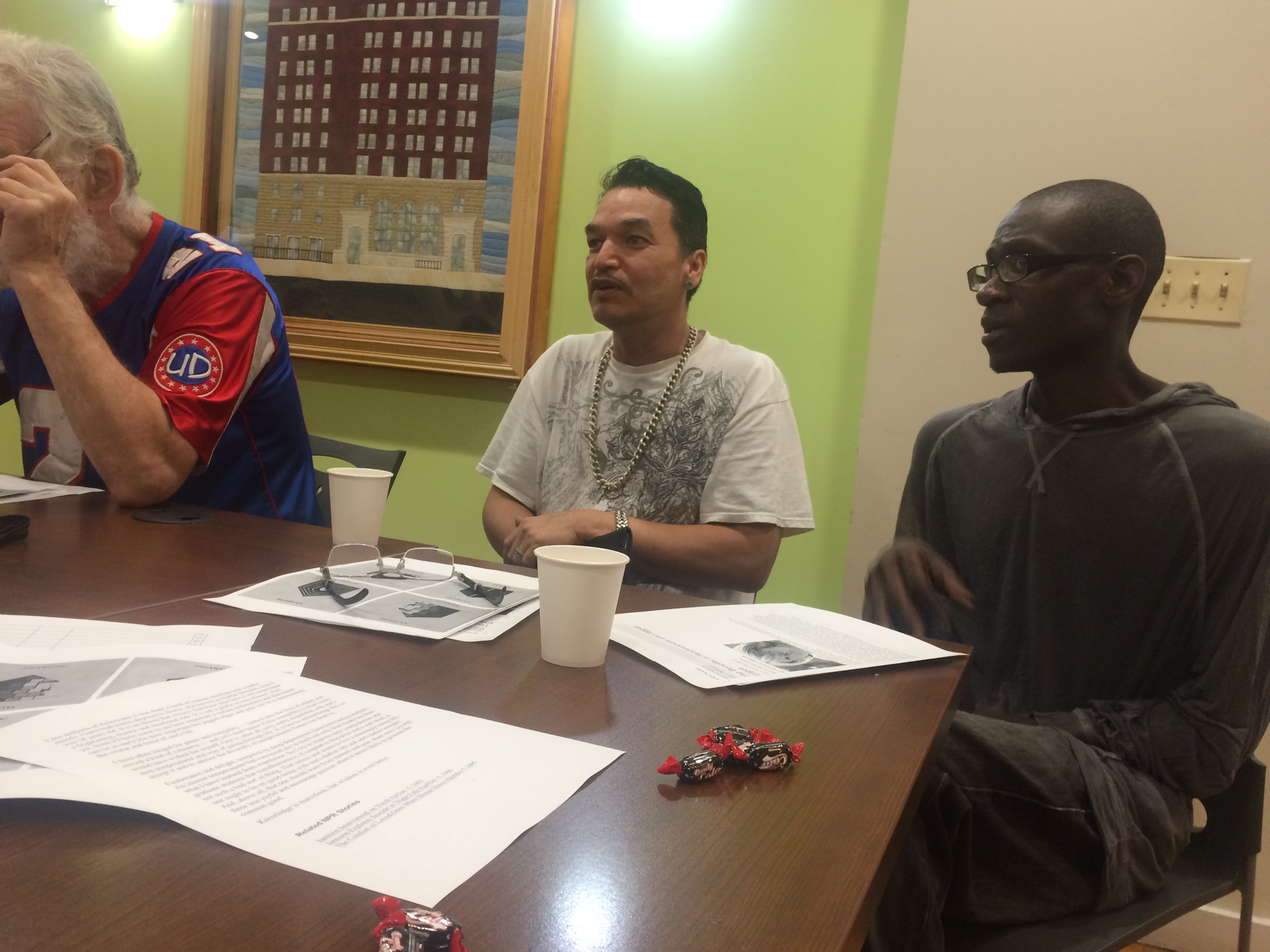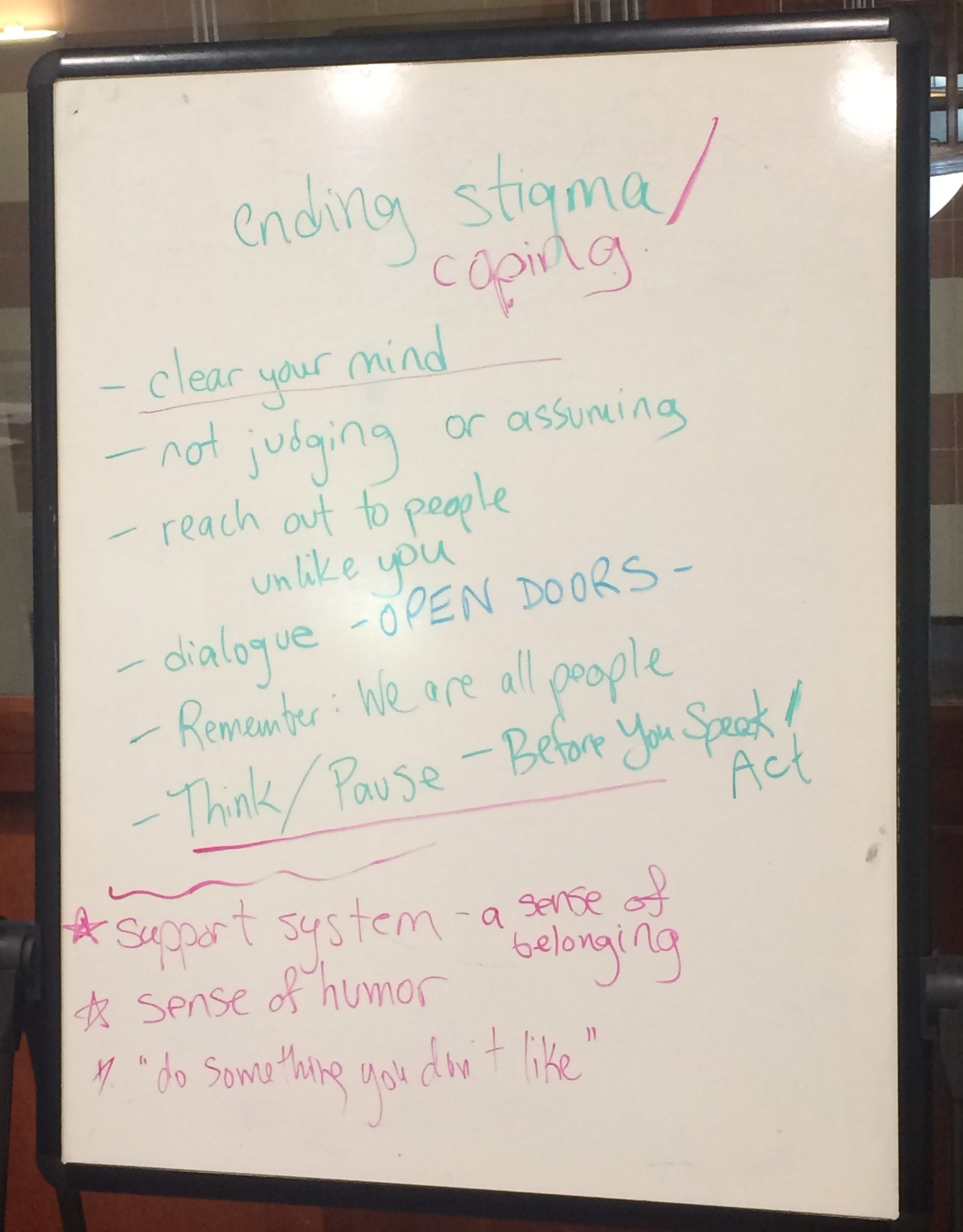Blog

A Place of Unity
September 7, 2017During the end of July, a group of tenants at The Christopher supportive housing residence gathered for a UNITY group meeting. Comprised of tenants and staff, the group meets every Friday to discuss topics like spirituality, sexuality, politics, mental health, race and community. Since its inception, the group has gained a following of tenants looking to make their home a place of openness and understanding. By tackling challenging and at times divisive topics, the group has created an atmosphere of unity in a diverse community.
The UNITY group, which stands for Understanding, Nuance, Independence, Tolerance and Yearning, is defined in its mission as “a space where all are welcome regardless of background, diagnoses, status, ethnicity, political beliefs, gender identity or any other difference.”
 Rodney, a former tenant of The Christopher founded the group to provide his fellow tenants with a space to discuss the things happening around them. “When you discuss social issues and other things like that, they work themselves out,” he explained.
Rodney, a former tenant of The Christopher founded the group to provide his fellow tenants with a space to discuss the things happening around them. “When you discuss social issues and other things like that, they work themselves out,” he explained.
Facilitators Kelly Ebbels, CUCS Social Worker, and Sean LaRocca, CUCS Tenant Service Assistant, said the group has grown popular since its founding; it now has a core group of members and every week new people join the conversation.
Kelly started the meeting off by saying “we’ve gathered here to work towards a common goal, to talk openly about community, challenge biases and gather skills to listen and learn from one another in the spirit of respectful curiosity.” She introduced the topic of the day, substance abuse and addictions and pointed out these types of mental illnesses often are negatively stigmatized.
John, a group member, shared that addictions can be coping mechanisms, and it is difficult to understand someone when you have not lived their experiences. Rodney agreed, saying “whatever it is that they do, at the end of the day they are still a person.”
Together, the group read an essay about mental health by Kay Redfield Jamison, a professor of psychiatry at the Johns Hopkins School of Medicine, titled “The Benefits of Restlessness and Jagged Edges.” They discussed how the author has learned from her bipolar diagnosis.

Participants also brainstormed ways to breakdown the stigma attached to mental illness and addiction. Group member Sally pointed out that discussions like the ones they have at UNITY group meetings can open doors and help people understand one another. “If you can make people have a sense of belonging, that is great,” John said.
As the meeting ended, members thanked each other for being open to sharing. Kelly and Sean announced the next meeting topics: race and politics and community and home.
